02 Jul 2025
Yuzhi Chen is a 2024 graduate in English Studies from the School of Humanities and Social Sciences (HSS). Over her four years at the XJTLU, she delved deeply into English literature, conducting a research project on "The Reception of British Poet Shelley in China," participating in stage productions of Harold Pinter's plays, and even serving as a student instructor in design-related courses. She describes her literary journey as a “utopia grounded in reality,” where she steadily transformed her ideals into reality through exploration and persistence.
In her view, the path of literature may be a lonely one — but within the HSS, she never felt alone. She had both mentors to guide her and companions to walk alongside her.
This September, Chen Yuzhi will begin a new chapter in her literary journey by pursuing the world’s top-ranked English program (English 1700-1830) at the University of Oxford.
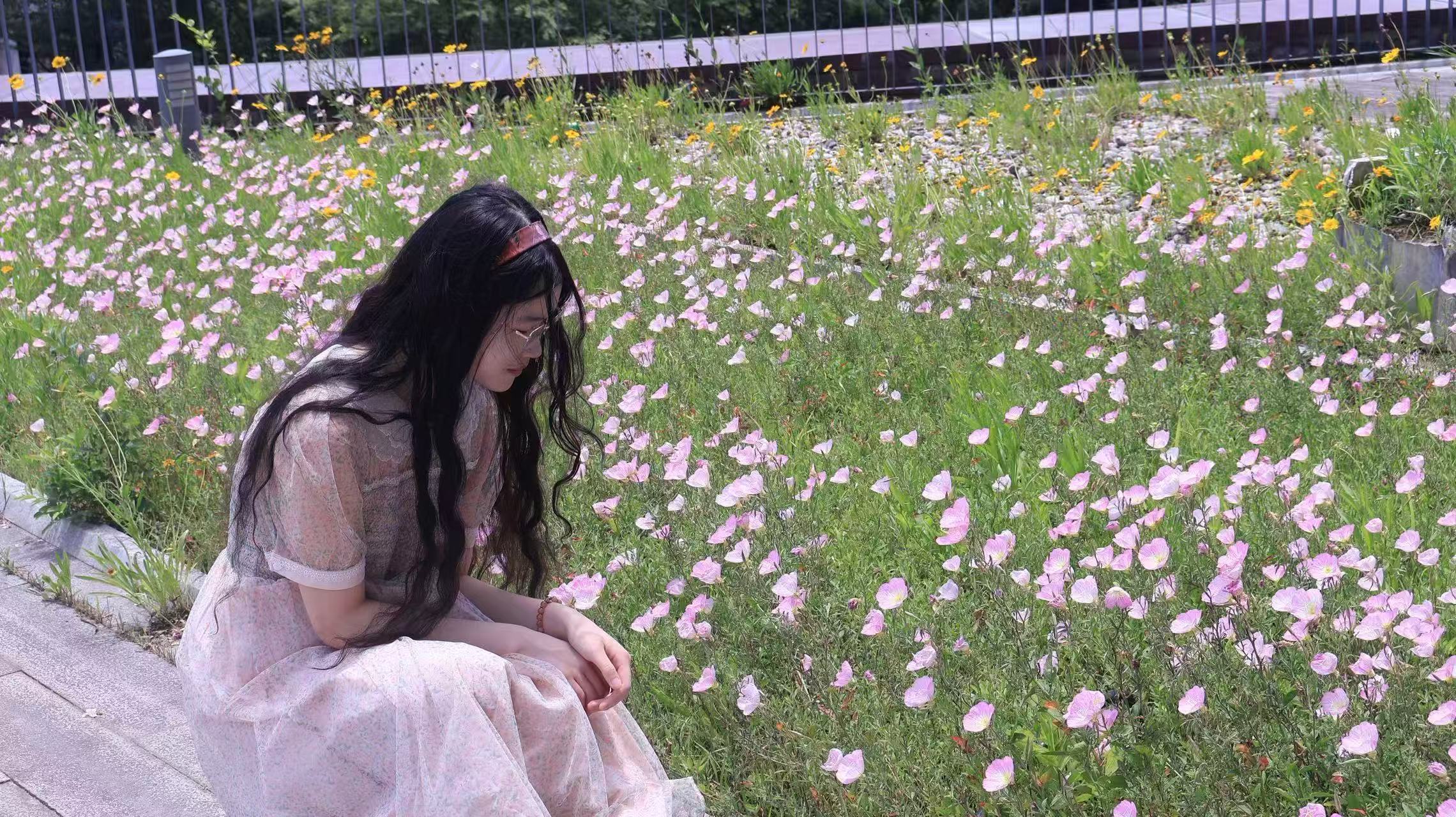
The following is her personal story with English literature ——
Literature is the science of books, but it goes far beyond books.
Long before I entered university, I had already decided that my academic path would always be rooted in literature and the humanities.
The literature courses I took inspired and nurtured many of my interests. One of my teacher once described literature as “the science of books,” while another said it is “not just about books.” I find myself drawn to both perspectives. Personally, I feel that literature classes embrace and question the aesthetics and power of words, and explore the myriad through words.
For example, in the course Elizabethan and Jacobean Tragedies, we traced literary criticism of Shakespeare and his contemporaries from the modern era back through the Victorian and Romantic periods. It was both a journey through theatre and a retrospective voyage of artistic reflection. In this class, we explored the interplay between tragedy and comedy, delved into early modern England’s views on religion, nature, mysticism, and gender, and examined Shakespeare’s influence on later writers such as the poets of the 19th century. The richness of the course defies full summary.
For another example, our courses on Literature of the Enlightenment and Romanticism were not only classes in literature and poetics, but also in philosophy. Meanwhile, courses like Literature and Gender and Postcolonial Literature offered spaces where the traumas of gender and colonial histories were confronted with honesty and empathy. I still vividly remember discussing gender concerns and women’s voices in literature with Professor Liu Yuexi in the Literature and Gender course. It was precious and healing experience for me.
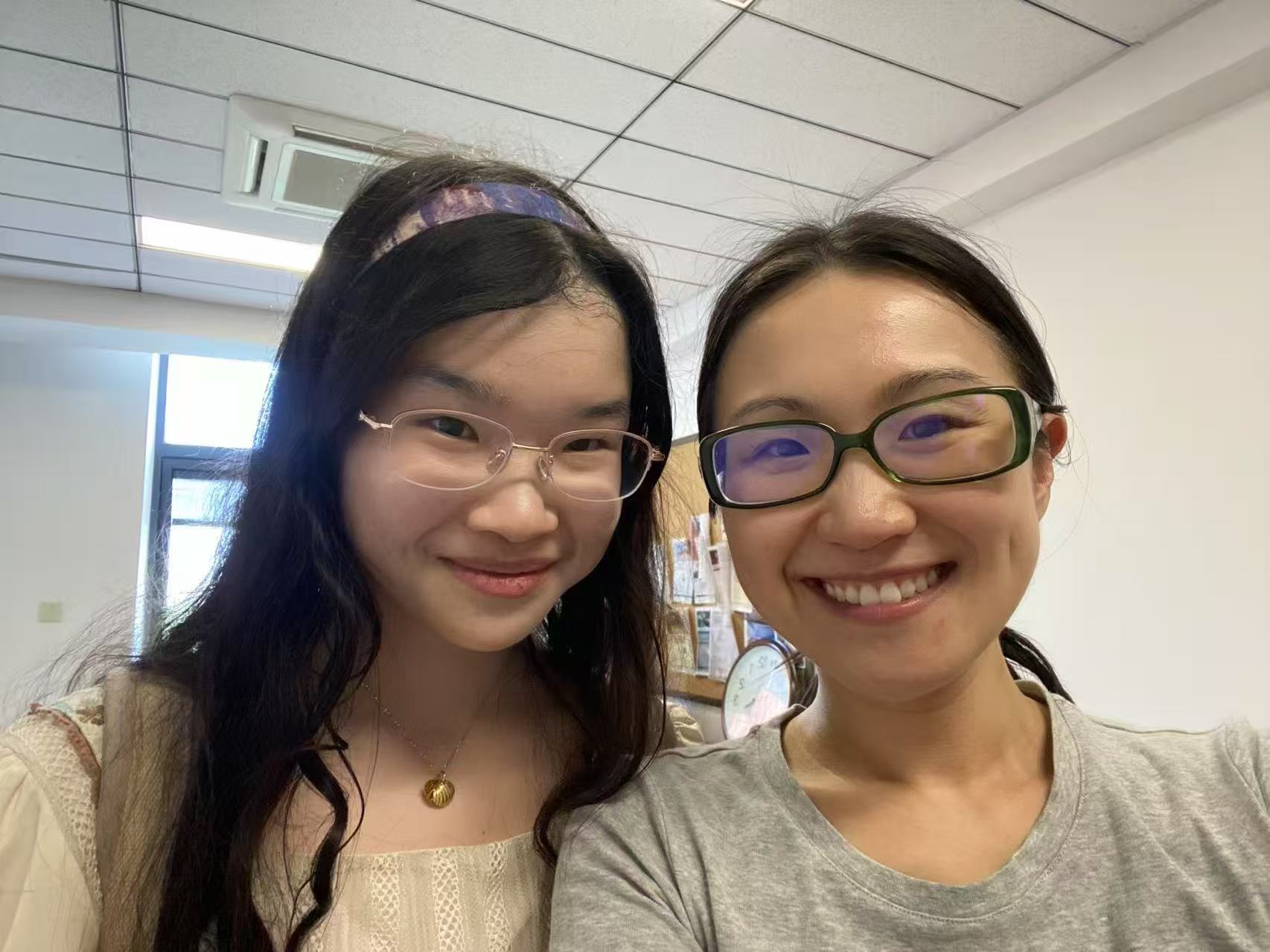
Drama and literature are inseparable. In the first semester of my third year, I acted in a production of Old Times by Harold Pinter, directed and performed by Professor Peter Yacavone himself. Listening to Peter analyze the script and Pinter, guiding us into the inner lives of our characters, felt like being transported back to 1960s London. From rehearsals to live performances, to engaging with the audience and inviting them to write reviews, I came to realize that literature is not only a deeply personal journey but also an invitation for others to engage with one’s inner self. Theatre, in particular, is one of the most vibrant spaces for such mutual appreciation. That semester, taking both drama classes and performing on stage further deepened my love for Drama literature.
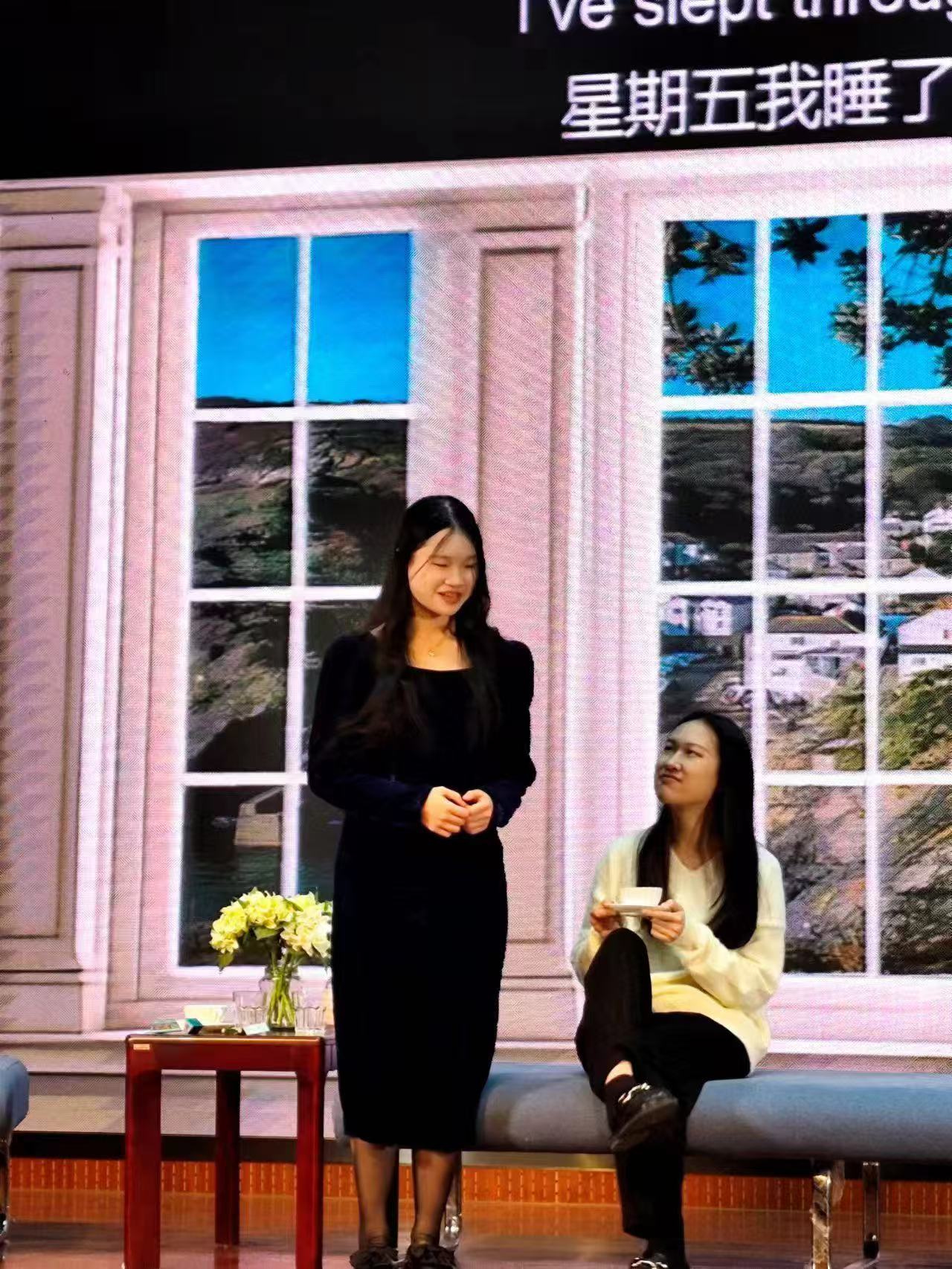
One of the most cherishablethings in a literary seminar is that some highly personal perspectives on contact with the world can be confirmed, defended (or refuted), and argued through words. Literature courses carry both lofty resonance and subtle attentiveness. They offer dazzling rhetoric and humble inquiry. Perhaps they are not the most popular classes, but that should never diminish their richness and inclusiveness. I believe every literature student hopes these courses will receive greater support and continue to exist and thrive steadily and enduringly.
Breaking the Cocoon: A Journey to the Academic Stage
Each year, the School of Humanities and Social Sciences hosts the HSS Annual Undergraduate Conference, offering a platform for undergraduates to present and discuss their course-based research.As a Year One student, I watched Year Three and Year Four students deliver presentations, engage in post-session debates and conversations, and listened to professors speak about “helping students realize the value of their own research.” Although the road ahead seemed long and circuitous , I had already planted a seed of longing to become a researcher . And from that moment on, I have been working, little by little, toward that goal.
So I actively sought out opportunities to collaborate with my professors on research projects, and I feel both grateful and fortunate to have received their genuine support.
In the first semester of my third year, I was privileged to serve as a student lecturer at XJTLU’s Research Center for Culture, Communication, and Society. I designed and delivered a six-session optional course on women’s literature in English, Spanish, and Chinese to interested students. This experience taught me how to foster open discussions while maintaining focus and pacing by engaging with students’ ideas and clearly expressing my own. It deepened my understanding of how professors facilitate dialogue and enhanced my abilities in verbal comprehension and logical communication.
In the second semester of my third year, I proposed a research project with my literature professor, Dr. Jon Ford, titled “Scattering Sparks: The Literary Afterlife of Percy Bysshe Shelley in China.”When I first reached out, my ideas were still unformed, so I was truly grateful that Jon welcomed the proposal and nurtured its many possibilities, allowing it to slowly take root and grow. The research journey has been not only about Shelley as a poet, but also about how early pioneers of modern Chinese culture first began reading world literature as a powerful new text. It is very touching and charming to see them introduce so many foreign poems to enlighten themselves in the turbulent historical era, and their radical attitude but also cherishness towards culture. It inspires me to keep pursuing this project with commitment. At the same time, I have a small selfish wish: I hope there will be more and more SURF research projects on literature.
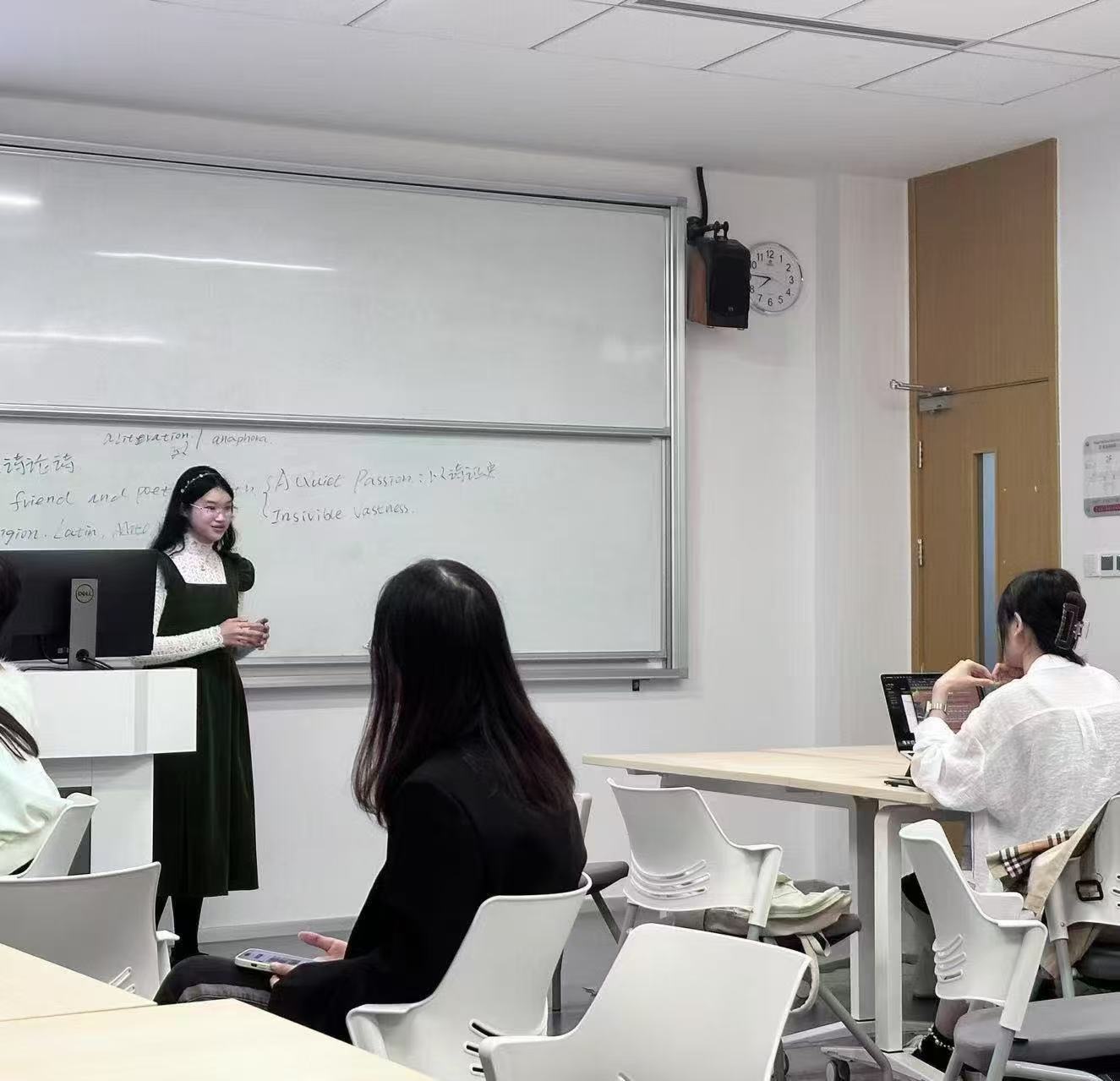
Through continuous academic practice and research, I was able in my third year to turn a course paper on early feminist writers into a presentation-ready project, which I successfully shared at the HSS Undergraduate Conference. The process of seeking guidance from my professors and sharing moments of progress created a positive and constructive dynamic between expression and personal growth.
A Collaborative Utopia of Teachers and Students
One of the aspects I treasure most about studying literature at XJTLU is the rich array of literary activities. Starting from my third year, each semester included faculty-led theatre performances, theatre trips , and poetry groups—each occasion sparking meaningful dialogue and reflection. Literature came alive beyond the pages, becoming part of our daily lives, conversations, imaginations, joys, and sorrows.
Secondly, the professors never hesitate to share their insights and guidance, encouraging us to become writers of ideas rather than mere readers. Interacting with each professor offers diverse perspectives on literature and reveals how they nurture a thoughtful and rigorous personal engagement with the subject. Having such deep and lively exchanges with faculty is truly unique and precious. I also believe this is why we hope to preserve this vibrant space for teaching and learning literature for years to come.
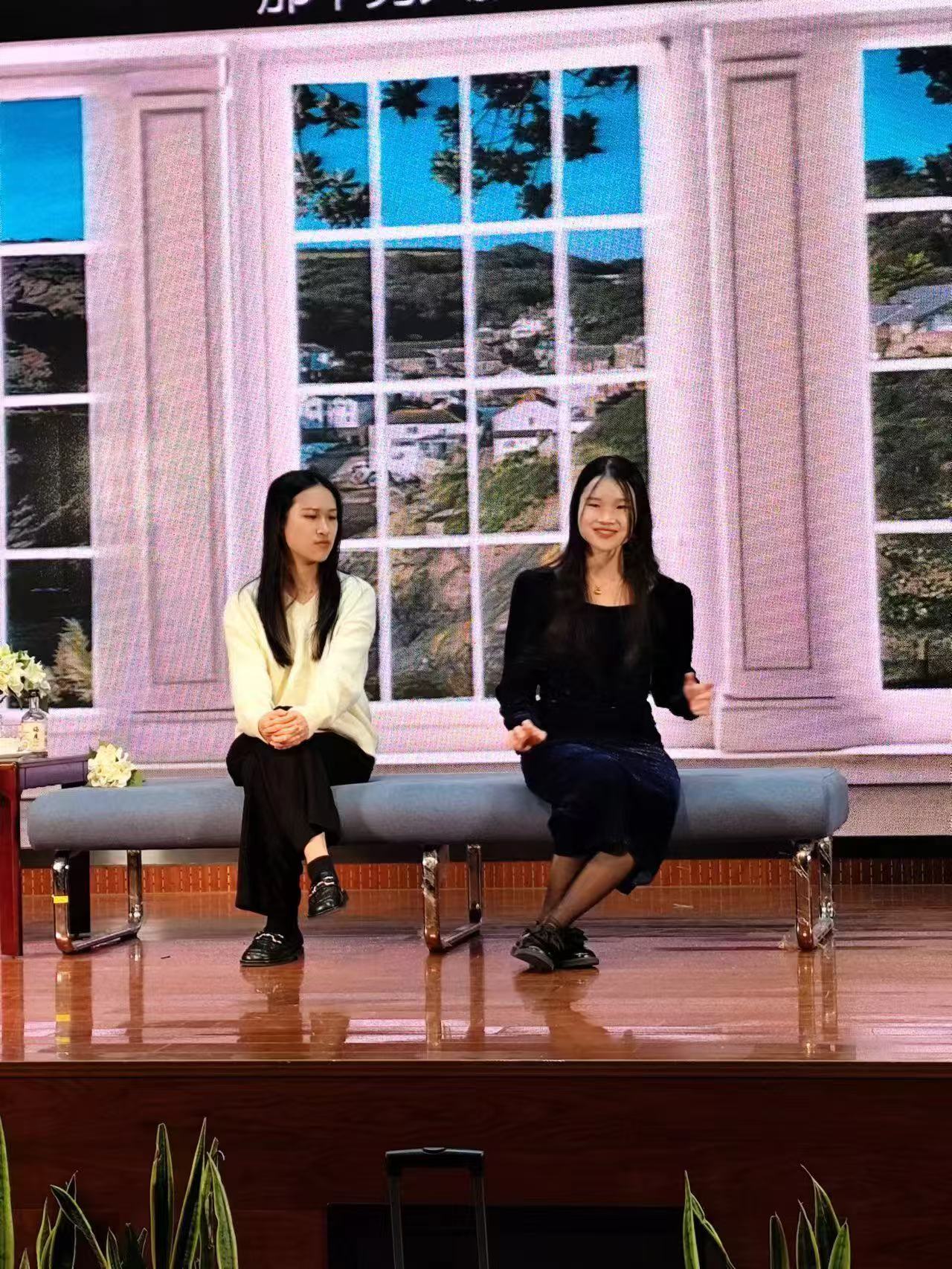
Besides that, the most valuable resource for my application has been the practical help and advice from my professors. As experienced guides on this path and observers of our growth, they offer extensive guidance on personal statement writing, project selection, and identifying interests, along with invaluable emotional support.
The literary journey at HSS may be solitary, but it is never lonely, for we have both guides and companions along the way.
The Bittersweet Journey of Applying for Literature and the Journey of Self-Reflection
For me, literature is a utopia rooted in reality, a simultaneous embrace of both pain and paradise, where the fleeting moon reflected in water can become tangible. Texts are the source of my passion; even when literary criticism and theory bring despair, the words and works themselves always offer healing. Conversely, in moments of confusion, I find inspiration in past scholarly works, marveling at the author’s sharp insight. I hope that the tremors of my own thoughts and emotions can manifest as a meaningful sentence or line, existing in some form that can be shared. It feels as if every essay I write is a tiny firefly of persistence shining through to the end. Perhaps this is the bittersweet nature of the journey.
For my graduate application, I just simply organized all my experiences into a coherent narrative and reflected on what I have gained. If learning itself is an exploration of a mysterious realm, and experiences are like picking and planting flowers, then applying feels like carefully turning these flowers into specimens, labeling them, and presenting them delicately. It can be tedious and exhausting. Perhaps the best preparation is all the footprints we have left from Year One to Year Three.
However, I believe and many have told me that all our written work is crucial. Our personal statements and writing samples are the best media to showcase us as writerly readers and readerly writers, to borrow a phrase from my literature capstone course. Personal statements reveal our unique literary worlds, while our essays demonstrate our ability to construct those worlds within academic discourse.
Growing through challenges, arriving in spring.
For students still exploring their research interests, I personally suggest consciously observing and cultivating your areas of interest. One piece of advice from a professor is to review the programs you wish to apply to and identify which universities’ research focuses, academic strengths, and faculty interests offer you the greatest opportunities. I want to highlight a point from Oxford’s official website: reflect on what new perspectives you can bring to the academic community and what you hope to gain in return. In this way, the application process becomes one of self-reflection and inquiry, a moment to send yourself out into the world and welcome the world into yourself.
For the classmates who hold passion for literature, the tiny advice I could share is to embrace each literary experience to adventure (including class discussion, research seminars, readings, essay writings, self-readings, even most subtle gleams of cultural inspiration. Rilke, one of my favourite poet said: “…try to like questions themselves like locked rooms, like books written in a foreign language”(Letters to a Young Poet). I put it here as the purest wishes for all and for myself ♥!
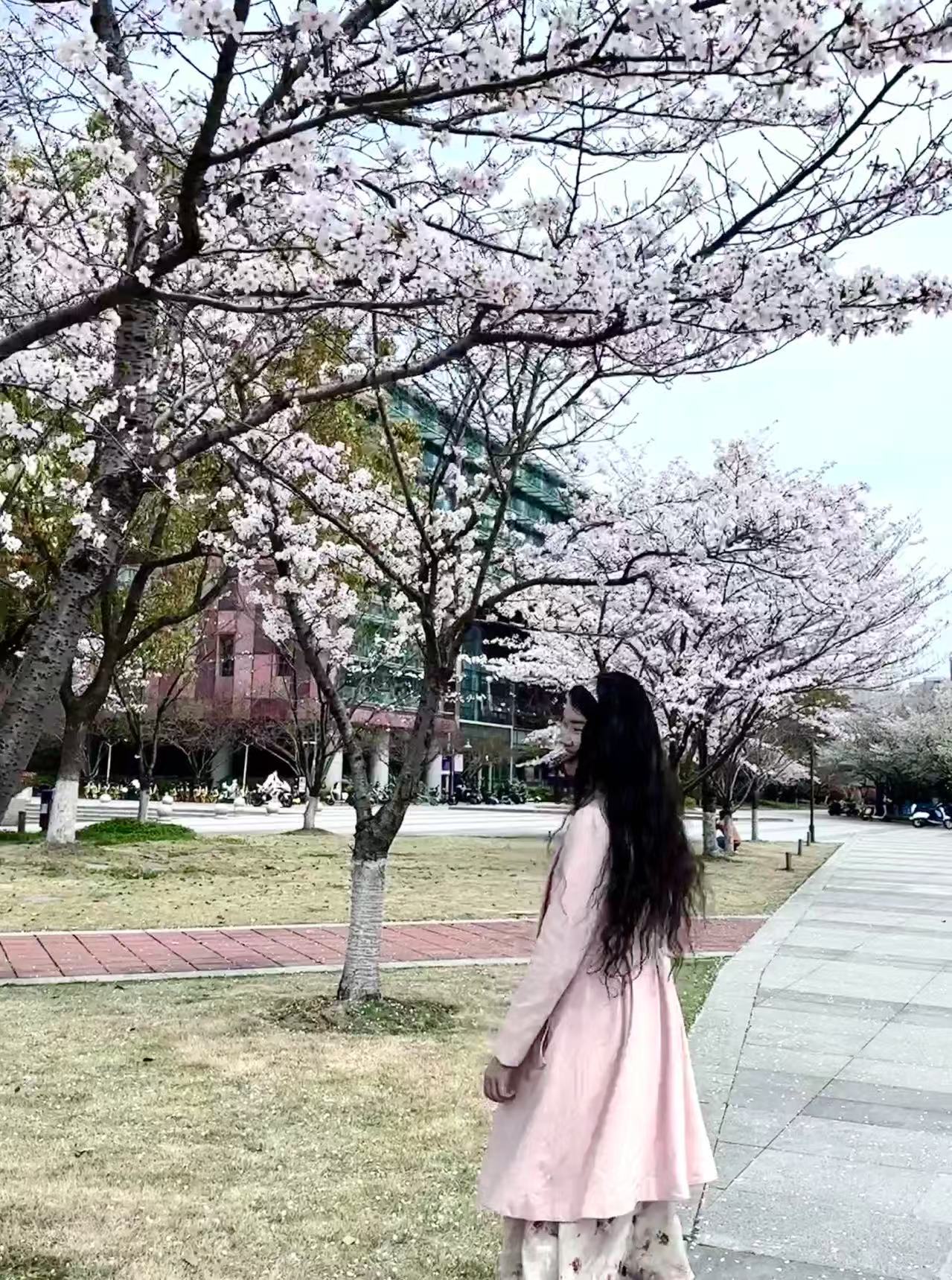
Reporter: Yiyi Gu, Zhen Ma
Translator: Jiaying Zhang
Photo providor: Yuzhi Chen
02 Jul 2025








